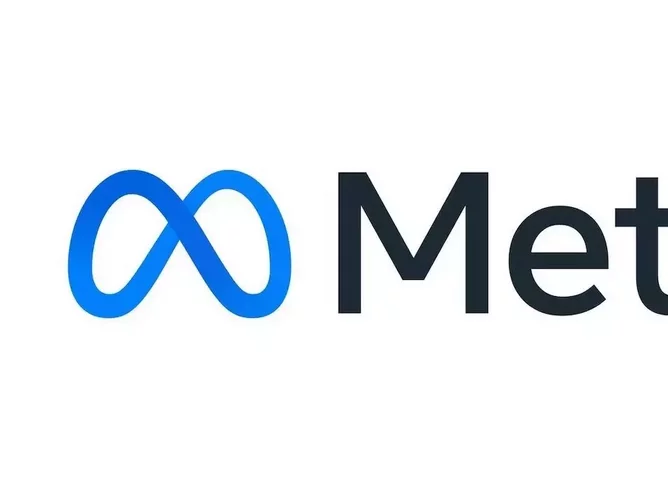Top 10 companies that changed their names

Changing the name of your business is a big decision so why do household names like Google and Facebook do it? Why do companies change their name? Some outgrow their names as their business model evolves, others may be looking to distance themselves from negative publicity. Here are 10 of the biggest name changes.

1. Facebook changes name to Meta
In a move to go ‘beyond’ the social network where it all began (‘meta’ means ‘beyond’ in Greek), Facebook has changed its parent company name to Meta. Meta also owns Instagram and WhatsApp as well as Facebook.
Meta is also a reference to the Metaverse which Facebook boss Mark Zuckerberg is keen to build – an online universe where people can interact, work and communicate virtually, using Facebook’s Oculus VR headsets.
The rebranding comes at a time when Facebook is experiencing negative publicity, so could be a way to distance themselves from this, although Zuckerberg puts a more positive spin on the move.
“To reflect who we are and what we hope to build, I am proud to announce that starting today, our company is now Meta,” said Zuckerberg. “Our mission remains the same — it’s still about bringing people together. Our apps and our brands — they’re not changing either.”
Except Oculus, which is being rebranded to reflect Meta. So, at least that’s clear…
2. Why Google changed its name to Alphabet
Admit it. How many of you actually think of Alphabet when you think of Google? It has been more than six years since the search engine leader ‘did a Facebook’ and changed its name to reflect the different companies it had swallowed up during its rapid growth.
The Alphabet universe includes AI pioneers DeepMind, wearable health tech Fitbit, video behemoth YouTube and of course that ubiquitous search engine that has become a verb.
Alphabet also invests heavily in startups and more mature tech brands, such as Uber.
3. Netflix cancels Qwikster rebrand
A decade ago, when DVDs were still a thing, Netflix provided a DVD service by post (when post was still a thing) as well as its burgeoning movie streaming business. It decided to try to differentiate between the two services by changed its legacy DVD delivery service to Qwikster. Customers didn’t like it, and neither did investors, with stock falling by half its value before Netflix performed a rapid U-turn. It has not looked back since, and currently has more than 200 million subscribers.
4. Apple Computers becomes Apple on iPhone launch
Back in 2007 when Apple changed the consumer technology landscape with the launch of the all-conquering iPhone, it also changed its name to better reflect what it was producing. Apple dropped ‘Computers’ from its name and although Apple Mac computers and laptops are still in demand, it’s the iPhone that continues to bring in the revenue – even though it canabalised the market for its popular iPod digital music player in the process. Save your tears. Apple has sold more than 2 billion of its smartphones.
5. Amazon’s magic formula comes from Cadabra
The story goes that Jeff Bezos decided to change the name of his book delivery service from Cadabra (short for the magic word abracadabra) after a lawyer thought he said ‘cadaver’ – a technical term for a dead body. Realising the possible negative impression this may set, Bezos changed the name to Amazon, having also been keen on Relentless. We think he made the right choice.
6. McAfee became Intel Security before reverting to McAfee
When security software giant McAfee was bought by Intel in 2011, the new owners were keen to rebrand as Intel Security. Then in 2016, Intel announced that McAfee would emerge once again, as a standalone cybersecurity company in a joint venture with TPG. McAfee was reborn.
7. Tobacco giant Philip Morris becomes Altria
As one of the world’s biggest tobacco companies (behind brands like Marlboro) facing legal action and public relations disasters, Phillip Morris decided to rebrand as the Altria Group in 2003. Some argue that the rebrand was clearly a move to distance the company from its bad publicity, and therefore simply highlighted the negative image still further.
8. Subway used to be called Pete’s Super Submarines
Perhaps not as catchy or memorable, but Pete’s Super Submarines has a certain charm that Subway simply lacks. The company was formed by Pete Buck in 1965 and Pete’s Super Submarines soon became Pete’s Submarines before settling on Subway since 1968. There are now around 42,000 outlets around the world.
9. Accenture emerged from Andersen Consulting
When Andersen Consulting split in 2000, a competition was held for employees to find a new name for the consulting firm. What emerged was a combination of ‘accent’ and ‘future’, to form Accenture. The rebrand following the split was unpopular but timely – when the Enron scandal erupted in 2001, its accountants Arthur Andersen suffered reputational damage.
10. Royal Mail name change to Consignia proved unpopular and short lived
Another name change from 2001, and a hard one to really understand. The Royal Mail is a brand that began as far back as 1635 yet somehow the decision was made to change its name to Consignia – a move the then CEO said better reflected the scope of the business. Customers disagreed, and the name was changed back to Royal Mail a year later.






